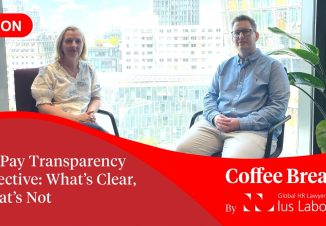
In principle every country has its own social security regime and its own social security rules. To promote internal mobility Regulation (EEC) 1408/71 was introduced. This Regulation doesn’t provide a unified European social security regime but rather a series of designation rules to determine which social security is applicable in the event of cross-border employment. The basic principle is that one is subject to the social security regime of one Member State, namely the security of the country of employment. There are two exceptions to this principle: secondment and simultaneous employment in various Member States.
As Regulation (EEC) 1408/71 dates from 1971, it was modified in 2004 by Regulation (EC) 883/2004. However, with regard to the latter, we had to wait until the implementing regulation was adopted before it could enter into force. On 27 July 2009 this implementing regulation was finally adopted though it has yet to be published in the Official Journal of the EU. The new rules are expected to enter into force from 1 May 2010.
The following is an overview of the most important modifications.
Secondment
Under the current Regulation an employee can be posted to another Member State while remaining subject to the social security regime in the home country for an initial period of 12 months. Afterwards, a prolongation can be permitted for a new period of 12 months. Under the modifying Regulation, this initial period of 12 months is now prolonged to 24 months.
In practice secondments up to five years are allowed on the basis of the exception provision (this is by virtue of an agreement between the home country and the host country). This possibility continues to exist. The other secondment conditions also remain applicable.
Simultaneous employment
The rules relating to simultaneous employment have been amended in a more significant way. On the basis of the new rules some workers risk to fall under another social security regime.
25% rule
Under the current Regulation the employee who works in various Member States, is subject to the social security regime of his state of residence when he pursues “a part” of his activities there. How much the employee has to work in his state of residence is not further specified. The jurisprudence of the European Court of Justice doesn’t give much clarity either. For many Member States an average of one day a month is therefore enough to subject the employee to the social security regime of his state of residence. The exercise of only marginal activities in the state of residence will however not suffice anymore. Under the new Regulation the employee must pursue a substantial part of his activities, accounting for 25% of his work time or remuneration, in his state of residence in order to be subject to the social security regime of his state of residence. If not, he will be subject to the social security regime of the Member State in which is situated the seat of the employer employing him.
An exception to the 25% rule is foreseen for those employed in various Member States by an employer that is situated outside of Europe and residing in a Member State. They are automatically subject to the social security regime of their state of residence, even if they do not pursue a substantial part of their activities there. The same applies for employees who are employed by various employers that have their seats in various Member States. For them as well, the 25% rule doesn’t apply, as they remain subject to the social security regime of their state of residence anyhow.
For a self-employed person the 25% rule also applies. If these are not fulfilled, such individuals are subject to the social security regime of the Member State in which “the centre of interest of their activities” is situated.
Annexe VII
“Annexe VII” is repealed under the new Regulation. Belgian self-employed persons (as e.g. administrators of undertakings) who also pursue activities as employees abroad will from now on also be subject to the social security regime for self-employed persons in the Member State that is competent for their activities as an employee for their Belgian self-employed activities.
Abrogation of the specific rules for international transport employees
The specific rules for the “driving, navigating and flying” personnel of international transport companies are repealed. From now on the same rules apply to them as to the other employees.
Entry into force and transitional measures
The entry into force of these new rules is in principle foreseen for 1 May 2010.
The new Regulation foresees a transitional period of 10 years during which existing situations under the present rules can continue to apply as long as these aren’t modified and as far as the employee doesn’t explicitly request the application of the new Regulation. In other words, if an employee will only marginally work in his home country although he wants to remain subject to the social security regime of the home country, it is important for him to establish the simultaneous employment before 1 May 2010. The same applies for administrators of Belgian undertakings who only work as an employee abroad but who want to be affiliated to the National Office of Social Insurance for the Self-Employed (and not to a foreign equivalent).
Also note that the National Social Security Office (WOSS) has informed us that they will only adapt existing situations when the employee sends a written request to the National Social Security Office to do so. Furthermore, the employee will have to pronounce explicitly in this request that he is aware of the consequences of this change for both the social security contributions and benefits.
An additional detail finally is that the new Regulation for now will only be applicable to EU nationals. Nationals of third countries remain subject to Regulation (EEC) 1408/71. Also with regard to Norway, Iceland, Liechtenstein and Switzerland Regulation (EEC) 1408/71 remains applicable.


